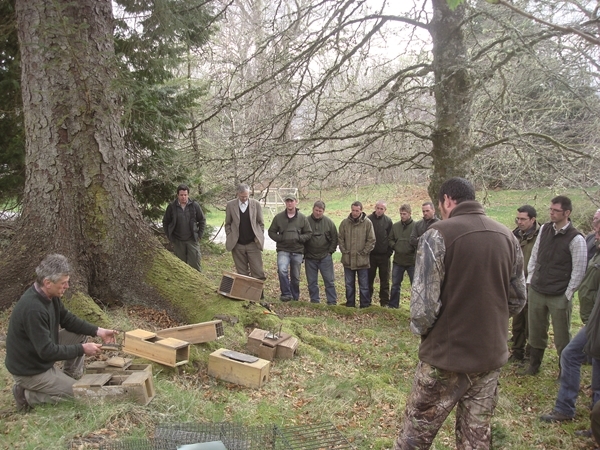
SHOOTS across the country looking for practical conservation advice can subscribe to GWCT’s widely-read newsletter.
The Shoot Manager’s newsletter, which has over 1,000 subscribers since it launched last year, contains advice and tips from our expert advisory team, updates on issues affecting shoots and crucial updates on legislation.
There’s also a list of courses on predation control, sustainable management of released pheasants, grey partridge conservation, identifying farmland birds, managing woodlands and shoot biodiversity assessments as well as invites to conferences and events such as Game 19.
GWCT’s head of advisory services Roger Draycott said: “The newsletter is a great tool in communicating to both members and non-members about initiatives the advisory team is doing.
“Our team of well-respected advisors can provide a one-to-one visit to your shoot and instruct you on any issues specific to your shoot or farm. Our advisors have a wealth of experience, having surveyed millions of hectares and base their advice on research produced by GWCT scientists.”
These visits provide advice on how you can improve your game and wildlife conservation, from declining species to increasing the efficiency of your game rearing, shoot management and shoot costs.
Dr Draycott added: “I would urge anyone who hasn’t already done so to subscribe to the newsletter.”
To sign up to the newsletter, which is sent regularly throughout the year, visit https://www.gwct.org.uk/shoot-owners-newsletter/ or use the form below:
*You may change your mind any time. For more information, see our Privacy Policy.
Notes to editors
The Game & Wildlife Conservation Trust – providing research-led conservation for a thriving countryside. The GWCT is an independent wildlife conservation charity which has carried out scientific research into Britain’s game and wildlife since the 1930s. We advise farmers and landowners on improving wildlife habitats. We employ more than 60 post-doctoral scientists and other research staff with expertise in areas such as birds, insects, mammals, farming, fish and statistics. We undertake our own research as well as projects funded by contract and grant-aid from government and private bodies.
For information, contact:
Eleanor Williams
Telephone: 07592 025476
Email: press@gwct.org.uk